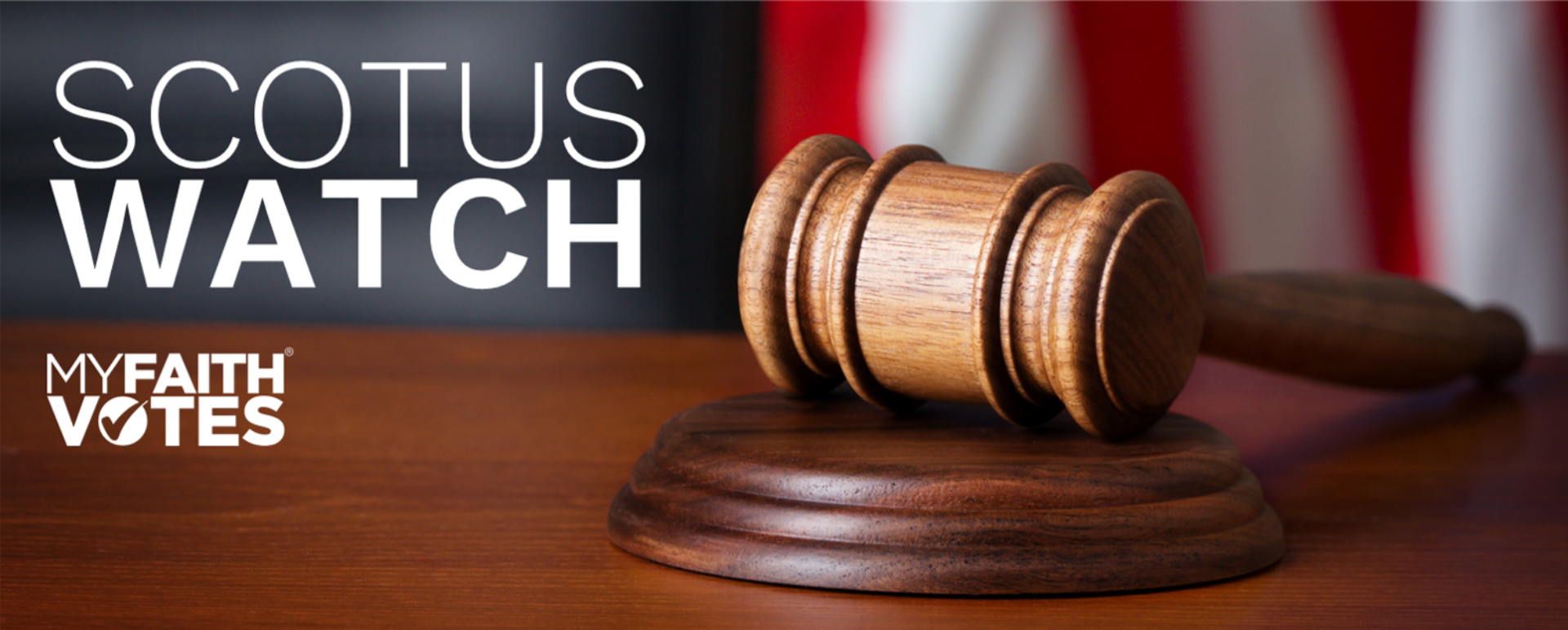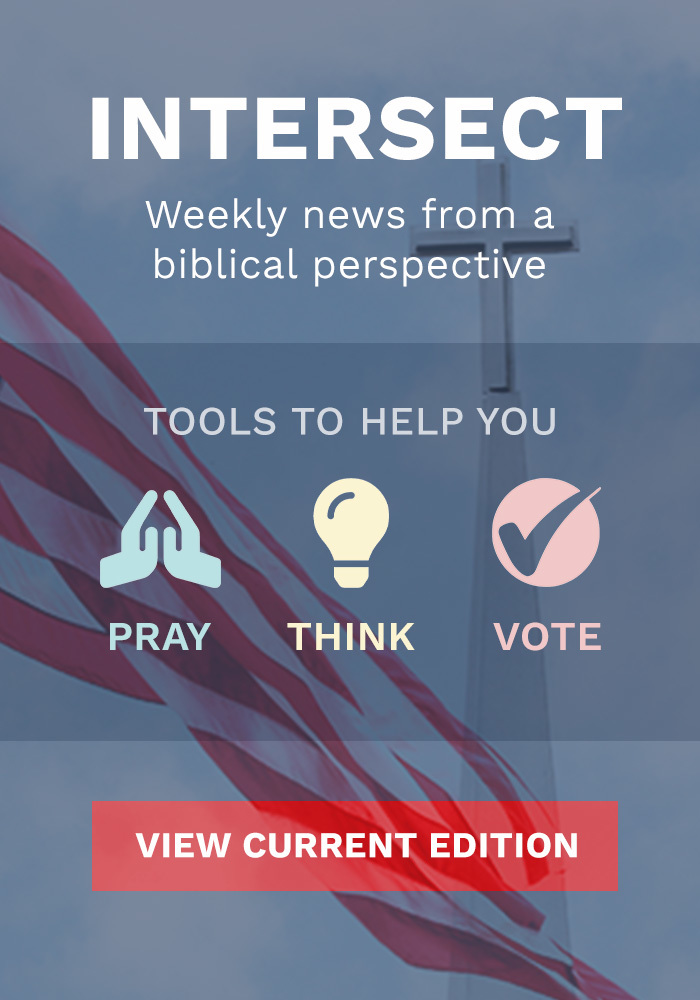
SCOTUS Watch | Jan 10, 2020
The 2020 Supreme Court session kicks off on January 13. The court will hear oral arguments for eight cases this month, including one case that is monumental for religious freedom.
Here are three cases this month that are worth noting:
- Espinoza v. Montana Department of Revenue
- Babb v. Wilkie, Sec. of VA
- Shular v. United States
Espinoza v. Montana Department of Revenue
In 2015, Montana established a new law providing a $150 tax credit per year for donations taxpayers make to scholarship granting organizations. These organizations then offer scholarships to income-eligible students to attend a private school of their choice. Recipients were initially permitted to use the funds to attend any school of their choosing, including religiously affiliated private schools. However, in 2016 the Montana Department of Revenue enacted a new rule prohibiting scholarship recipients from choosing religious schools. The rule was challenged by families of scholarship recipients who argued that the rule violated their constitutional right to free exercise of religion. They argued that because the tax credit only incentivizes taxpayers to make private donations towards the scholarship fund, there is no public funding used directly for religious schools.
The Eleventh Judicial District Court of Montana ruled in favor of the families. However, upon appeal, the Montana Supreme Court reversed the Eleventh Court’s ruling and dismissed the free exercise clause and deemed the scholarship program violated the “no aid” constitutional provision for religiously affiliated schools. The families appealed to the U.S. Supreme Court writing that the Montana Supreme Court’s ruling, "deepened the long-standing split on whether barring religious options from student-aid programs violates the federal Religion and Equal Protection Clauses." This case carries broad implications for Christians and religious institutions across the nation.
The central question in this case: Does it violate the Religion Clauses or Equal Protection Clause of the United States Constitution to invalidate a generally available and religiously neutral student-aid program simply because the program affords students the choice of attending religious schools? Oral arguments for this case will be heard on January 22, 2020.
Babb v. Wilkie, Sec. of VA
Dr. Noris Babb, a pharmacist working at the Department of Veterans Affairs Center in Bay Pines, Florida, sued the U.S. Department of Veterans Affairs (VA) over their decisions affecting her job duties. Dr. Babb alleged age discrimination and unlawful retaliation were to blame. The district granted summary judgment to the VA secretary and rejected Dr. Babb’s claims. The U.S. Court of Appeals for the Eleventh Circuit affirmed, stating that Babb could not show that age discrimination was a but-for reason for the VA’s employment decisions. However, the Eleventh Circuit wrote if it had not been for prior circuit precedent that it might have sided with Dr. Babb. The Supreme Court was petitioned for review; Dr. Babb argues the Eleventh Circuit Court’s decision disadvantaged federal employees under the Age Discrimination in Employment Act (ADEA) of 1967 and Title VII of the Civil Rights Act of 1964. The Age Discrimination in Employment Act requires that federal agencies’ “personnel actions affecting employees … who are at least 40 years of age … shall be made free from any discrimination based on age.” The ADEA federal-sector provision is different than the private-sector ADEA provision. The private-sector provision prohibits discrimination against an individual because of the individual’s age. However, the federal-sector provision requires decisions to be made without any discrimination based on age.
The central question in this case: Whether the federal-sector provision of the Age Discrimination in Employment Act of 1967, which provides that personnel actions affecting agency employees aged 40 years or older shall be made free from any "discrimination based on age," 29 U.S.C. §633a(a), requires a plaintiff to prove that age was a but-for cause of the challenged personnel action. Oral arguments for this case will be heard on January 15, 2020.
Shular v. United States
In Florida, Eddie Shular, a convicted felon, pleaded guilty to possession of a firearm and possession of a controlled substance. He had six previous drug convictions and therefore was classified as an armed career criminal. However, Shular disagreed with the classification arguing that his prior convictions were not “serious drug offenses” citing the Armed Career Criminal Act (ACCA). Both the Northern District Court in Florida and the Eleventh Circuit Court ruled against Shular’s objection. Shular then appealed to the U.S. Supreme Court arguing the Eleventh Circuit Court should not have used a categorical approach to interpret “serious drug offenses.” The Supreme Court will review the “categorical approach”, the process of evaluating which state offenses should require additional federal sentencing.
The central question in this case: Whether the determination of a "serious drug offense" under the Armed Career Criminal Act requires the same categorical approach used in the determination of a "violent felony" under the Act. Oral arguments for this case will be heard on January 21, 2020.
Please continue to be in prayer for our Supreme Court Justices this month. Pray specifically for religious freedom to be protected and upheld in the Espinoza v. Montana Department of Revenue case being heard by the Supreme Court on January 22, 2020.
If Christians want to see our Constitution and faith protected in the public square, we must faithfully pray over these vital decisions.
We encourage you to pray this scripture over our Supreme Court Justices and your own life.
“Teach me, Lord, the way of your decrees, that I may follow it to the end.
Give me understanding, so that I may keep your law and obey it with all my heart.
Direct me in the path of your commands, for there I find delight.
Turn my heart toward your statutes and not toward selfish gain.
Turn my eyes away from worthless things; preserve my life according to your word.
Fulfill your promise to your servant, so that you may be feared.
Take away the disgrace I dread, for your laws are good.
How I long for your precepts! In your righteousness preserve my life.”
Psalm 119:33-40
“The judge's job is to be faithful to the Constitution at all times; nothing more, nothing less.”
— Supreme Court Justice Neil Gorsuch
Supreme Court Justice Gorsuch recently wrote a book titled, A Republic If You Can Keep It. If you are interested in learning more about Justice Gorsuch’s judicial philosophy and the vital responsibility of each American to keep our republic strong, we encourage you to read his book. It’s insightful for Americans to read any books written by Supreme Court Justices to understand their judicial philosophies.
###
My Faith Votes— is a ministry that motivates, equips, and activates Christians in America to vote in every election, transforming our communities and influencing our nation with biblical truth. An estimated 25 million Christians who are registered to vote, fail to vote in presidential elections. My Faith Votes is on a mission to change this statistic by helping Christians act on their faith and vote in every election. When we pray unceasingly for our nation, think biblically about the issues, and vote consistently in every election the impact of Christians taking action from the local to the state and federal level will be unprecedented.
Website | www.myfaithvotes.org Twitter | @MyFaithVotes Facebook | My Faith Votes

 TV
TV